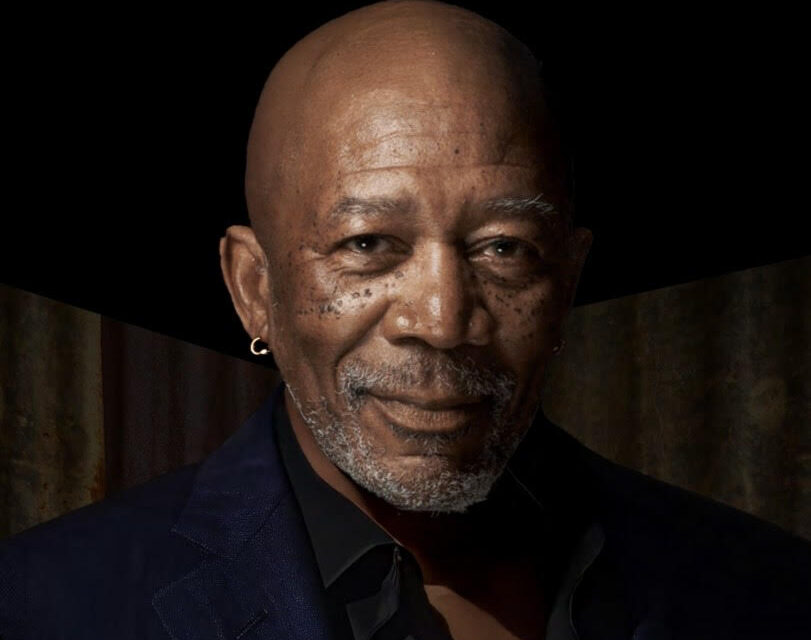The Mississippi Delta is where the blues was born, and its cultural legacy and global influence on music are undeniable. Morgan Freeman, who spent part of his early childhood in Mississippi surrounded by this music and its history, recalls the moment he first fell in love with the blues.
”It was the first music I ever heard,” Freeman said. “When I was little, I was living with my paternal grandmother, and I can’t think of any time that she went to church. I remember a few times ‘entertaining’ guys who played the guitar and sang blues. I didn’t know it was blues. I didn’t know it from anything else except church music, and a lot of them were alike. Now, why do I hear church music when I know my grandmother never went to church? I don’t know. I figured that out later. That was the music I knew. As I grew up in Mississippi, I began to learn more about what I’m listening to and why.”
As Freeman reminisces, he begins to sing the lyrics to “Hard Rock Luck” with the opening line: “A hard rock is my pillow, the cold ground is my bed. The highway is my home, so I might as well be dead. I am just walking and walking.” Freeman describes the essence of the blues as lament, referencing B.B. King’s “The Thrill Is Gone” as an example.
“I grew up knowing what this music is and what it’s about,” Freeman said. “It’s inherited and it’s in you. The guys who sing it, they sing it from absolutely from the heart.”
While exploring his talents in high school, Freeman and his older brother both acted and played music. His brother was first-chair tenor saxophone while Morgan blew alto.
“Music was really my older brother’s thing,” Freeman said. “He was gifted. I wasn’t. I was gifted on the stage.”
Freeman would go on to become one of the most renowned actors of his generation, with a career spanning six decades and several accolades, but his love for music never faded. He recalls the day in Clarksdale, Mississippi, when he and Bill Luckett were on Delta Avenue and saw a group of young people wandering around. Bill introduced himself and asked if they were looking for something.
“They said, ‘Where can we find blues music?’ when they’re in Clarksdale,” Freeman said. “There was a place where they played music, but it wasn’t dependable. It wasn’t there all the time. Every weekend you couldn’t be sure that they were going to be there. Bill decided, we got to fix that. People who come to Clarksdale to hear blues, there should be a place for it that’s dependable. That was the genesis of Ground Zero.”
Along with Howard Stovall, Luckett and Freeman opened Ground Zero Blues Club in 2001. The juke joint has hosted artists like Christone “Kingfish” Ingram, Bobby Rush, Willie Nelson, Paul Simon, and Al Green.
According to the club’s website, it’s “a place where anyone and everyone who comes to Clarksdale can experience the blues.” Freeman insists that it’s not a nightclub, but a juke joint—and he intends to keep it that way. While tourists come to Clarksdale to see history and hear the music, Freeman would tell Eric Meier to make sure the club remains authentic.
“We just need to provide a forum where people are going to come and experience it, but don’t Disneyland it,” Meier said. “Making sure that we are keeping it an experience that you feel like this place is legitimate. One quick trip to the men’s room will prove that.”
They know that not everyone can make the trip to Clarksdale, so the team is taking the music on the road. The Symphonic Blues Experience will stop in Nashville on Friday, September 26, at the Schermerhorn Symphony Center. According to the show’s description, with a special in-person appearance by Freeman this immersive musical performance fuses the raw, aching power of authentic Delta Blues with the grandeur of a symphony orchestra, creating a soundscape that is both deeply rooted and breathtakingly expansive.
Featuring cinematic narration by Freeman and powerful storytelling, masterful performances by Blues artists from Ground Zero Blues Club, and sweeping orchestral arrangements, Symphonic Blues unveils the Delta’s profound cultural legacy and its indelible influence on music across the world.
“The key we’ve tried to do to maintain integrity is first of all, deliver great performance,” Meier said. “When you’ve got the power of the symphony, you’re just compounding the effect of the music. It just amplifies what you’re doing and then you add the cinematic narration by Morgan. The beauty of what we’ve done is he traces the history of this music genre from the 1930s to the modern day. It’s a hundred-year journey of how this music probably should have failed at any moment, but somehow this incredible luck and talent to really persevere, grow, and evolve.”
“You would look at yourself and say, wait a minute, one of these was birthed in the concert halls of Europe, the other in Clarksdale, the surrounding Delta,” Meier said. “But we’re very fortunate. Our music director did a fabulous job with us at our show in Salzburg. He got so excited, he’s joined us now and he’s going to be guest conducting in several places, and it’s a narration by Morgan that has been prerecorded with this phenomenal footage. We’ve got a very special photographer that is from the Delta, she’s got some beautiful images. We’ve got archival footage and videos all put together about a two-hour show that really follows history.”

